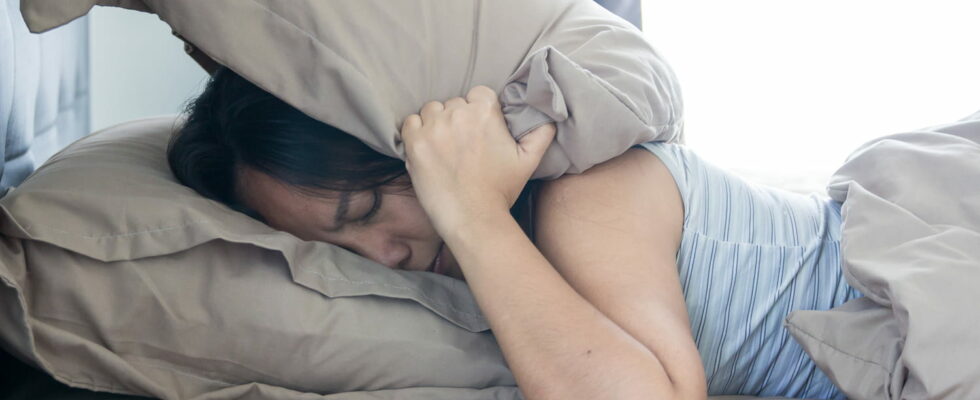More than one in 10 French people are affected by misophonia. You may be one of them.
Your colleague fidgets on his keyboard, your friend chews gum, your child bites his nails and all these noises annoy you deeply. What if you suffer from misophonia? This term, which appeared in the 2000s, is still very little known. Etymologically, it comes from the Greek “misos” which means “aversion” and “fonos” for “noise”.
Misophonia is then described by the Hearing Foundation as an “intense and irrational aversion to specific sounds or noises”. Physically, it would be caused by hyperactivation of the lower insular cortex, a brain region which usually allows us to direct attention to what is happening around us.
The noises that most commonly affect people with misophonia are snoring, nasal noises, teeth grinding, aspiration, and sometimes even just breathing. What differentiates people with misophonia from those who are only slightly bothered by sound is the strength of the response. Misophones are often prone to panic or distress: screaming and crying may be noted. The person is then no longer able to concentrate on anything else and feels as though they are obsessed by the noise. She may also feel deep anger towards the person making this sound. By trying to distance oneself from noise, there is a risk of withdrawal and isolation.

Misophonia remains difficult to diagnose. Psychiatrists then rely on a very specific evaluation scale: the Amsterdam Misophonia Scale, an adapted version of that used to measure OCD. Misophonia can be detected from the age of 12 on average. Without support, misophones often notice over the years that the list of unbearable noises grows longer. Apart from follow-up, it is also advisable to combat the disorder by avoiding, for example, running away by putting earplugs or headphones and by preferring to adopt relaxation techniques.
The proportion of people who would suffer from it would be quite significant. A study published in 2023 in the United Kingdom had identified that 18.4% of British people would be affected. In France, according to handicap.frthis would be up to 15% but to different degrees.
